Anthropology
-
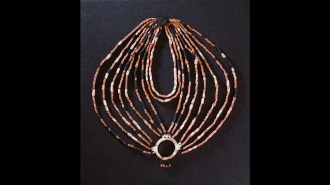 Archaeology
ArchaeologyA child’s ornate necklace highlights ancient farmers’ social complexity
The intricate necklace, reconstructed by researchers, was found on the remains of a child buried about 9,000 years ago in a Middle Eastern village.
By Bruce Bower -
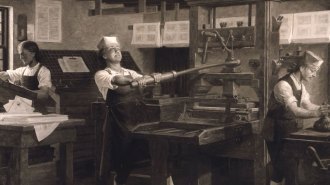 Chemistry
ChemistryHow Benjamin Franklin fought money counterfeiters
Researchers are confirming some of the techniques that Benjamin Franklin and his associates used to help early American paper currency succeed.
-
 Humans
HumansLauren Schroeder looks beyond natural selection to rethink human evolution
Paleoanthropologists studying the fossil record have long focused on natural selection, but other processes play a big role too.
By Anna Gibbs -
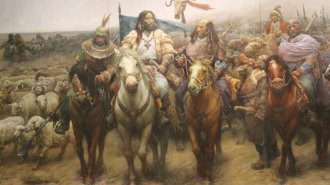 Archaeology
ArchaeologyHow Asia’s first nomadic empire broke the rules of imperial expansion
New studies reveal clues to how mobile rulers assembled a multiethnic empire of herders known as the Xiongnu more than 2,000 years ago.
By Bruce Bower -
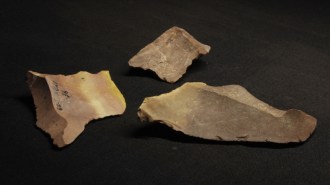 Archaeology
ArchaeologyIndigenous input revealed early hints of fiber making in the tropics
To decipher marks on nearly 40,000-year-old stone tools and figure out what they were used for, researchers turned to the Philippines’ Pala’wan people.
-
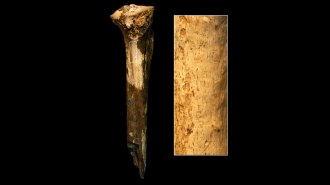 Anthropology
AnthropologyFossil marks suggest hominids butchered one another around 1.45 million years ago
Researchers disagree whether new evidence of stone tool marks on a hominid leg bone reflects ancient cannibalism or perhaps some other, undetected behavior.
By Bruce Bower -
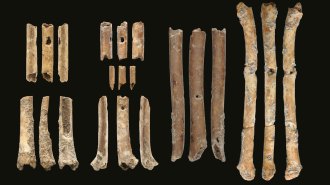 Anthropology
AnthropologyThese ancient flutes may have been used to lure falcons
Seven bird-bone flutes unearthed from a site in northern Israel are about 12,000 years old and may have been used as bird calls.
By Sid Perkins -
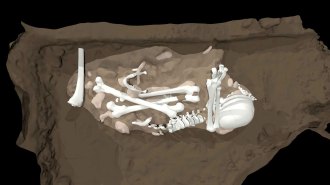 Anthropology
AnthropologyHomo naledi may have dug cave graves and carved marks into cave walls
Proposed discoveries of humanlike activities by these ancient, small-brained hominids have elicited skepticism from some researchers.
By Bruce Bower -
 Chemistry
Chemistry19th century painters may have primed their canvases with beer-brewing leftovers
Several paintings from the Danish Golden Age contain remnants of brewer’s yeast, barley and other grains commonly used to brew beer.
-
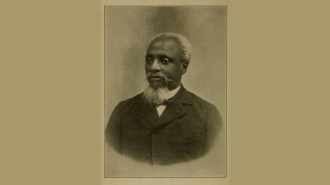 Science & Society
Science & SocietyAnténor Firmin challenged anthropology’s racist roots 150 years ago
In The Equality of the Human Races, Haitian scholar Anténor Firmin showed that science did not support division among the races.
By Sujata Gupta -
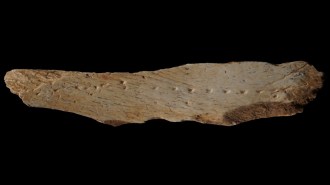 Archaeology
ArchaeologyA prehistoric method for tailoring clothes may be written in bone
A punctured bone fragment was probably a leatherwork punch board. Perforated leather sewn together may have been seams in clothing.
-
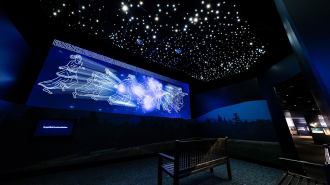 Science & Society
Science & SocietyThe Smithsonian’s ‘Lights Out’ inspires visitors to save the fading night sky
The exhibition examines how light pollution harms astronomy, ecosystems and human cultures. But it also offers hope.